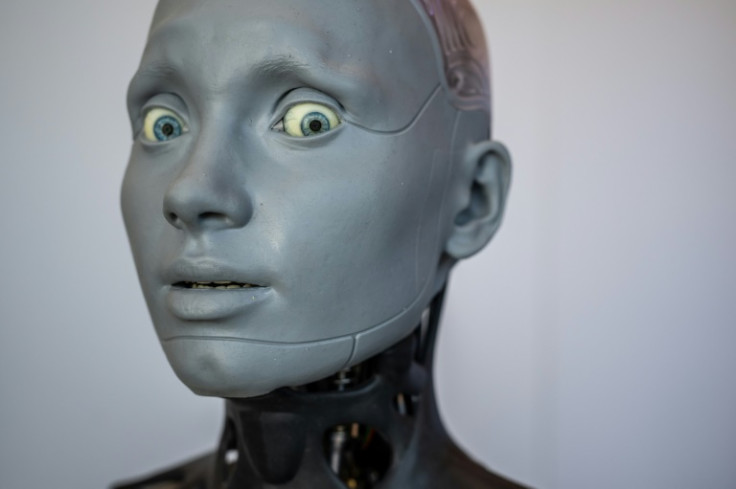Elon Musk Predicts 'Digital Superintelligence' To Arrive In 5-6 Years, Launches AI Company

KEY POINTS
- Musk reiterated the importance of AI regulation
- The Twitter owner raised the question of human "relevance" in the face of AI technology
- Musk launched xAI, an AI company that will understand the universe's true nature
Twitter owner Elon Musk predicted Wednesday that "digital superintelligence" would arrive in the next five or six years as the race toward AI dominance heats up. The tech mogul also launched a new artificial intelligence (AI) company called xAI on the same day, noting that the firm would "understand the universe."
"The definition of digital intelligence is that it's smarter than any human, at anything. That's not necessarily smarter than the sum of all humans — that's a high bar," Musk said during a Twitter Spaces conversation with Rep. Mike Gallagher, R-Wis., and Rep. Ro Khanna, D-Calif.
"I think it's five or six years away," Musk said of digital superintelligence, adding that the sector should have some sort of oversight just as nuclear technology has.
— Twitter (@Twitter) July 12, 2023
"You can't just go make a nuclear barrage, and everyone thinks that's cool — like, we don't think that's cool. So there's a lot of regulation around things that we think are dangerous," he explained.
Both Khanna and Gallagher agreed that there should be oversight of the superintelligence sector, with Khanna suggesting a regulatory body like the U.S. Food and Drug Administration (FDA), which ensures drug safety.
Gallagher argued that an AI regulatory agency may not keep pace with the breakneck speed of the industry's evolution. The Wisconsin representative said such fast-moving technology should be placed under "a more dynamic regulatory process."
Musk also raised the issue of human "relevance" if superintelligent technology comes along. "If it could do anything better than any human, well what's the point of existing?" he asked.
The Tesla CEO added that he thought it was important for the world to "worry about a 'Terminator' future in order to avoid it," referring to the movie where a cyborg assassin pretends to be a human.
On the other hand, he cited a good side of AI, saying that with it, there would not be a shortage of goods and services related to the technology.
The tech titan's insights of a "Terminator" future seem to echo the sentiments of a growing number of Americans who suggested in a recent poll that they believed AI could put humanity at risk.
Musk's discussion of AI with Khanna and Gallagher came hours after he launched xAI, a company that he said would "understand reality." The AI company's Twitter page was nearing 300,000 followers as of Wednesday night.
Announcing formation of @xAI to understand reality
— Elon Musk (@elonmusk) July 12, 2023
Musk's xAI company was formed "to understand the true nature of the universe," as per its website. A Twitter Spaces chat scheduled for Friday will give interested individuals the chance to ask questions from the xAI team.
Among the team members working on xAI are former Google DeepMind AI researcher Igor Babushkin, former Google research scientist Yuhuai Wu and University of Toronto assistant professor Jimmy Ba.
Linxi "Jim" Fan, an Nvidia senior AI scientist, said he was "impressed by the talent density" within the xAI team, adding that he had read "too many papers" produced by the 10-man team, excluding Musk.
Musk previously touted that the AI space needed a "third horse" as the current leaders in the ecosystem were ChatGPT maker OpenAI and Bard developer Google. At the time, the SpaceX founder said he was confident "Tesla would win" if given the chance to develop a large language model (LLM) such as the ones from OpenAI and Google.
However, there has also been concern that Musk may be biting more than he can chew in his hopes for the new AI company. "At this stage, xAI seems likely to lack the cloud computing power needed to match OpenAI, Microsoft and Google," Will Knight, Wired's senior AI writer, wrote.
Knight added that challenging the AI space's current leading giants — which all have huge teams working on their AI projects — and protecting the world from the dangers posed by the technology at the same time may be too huge of a task for "a lone genius with a small band of all-stars."
© Copyright IBTimes 2025. All rights reserved.




















